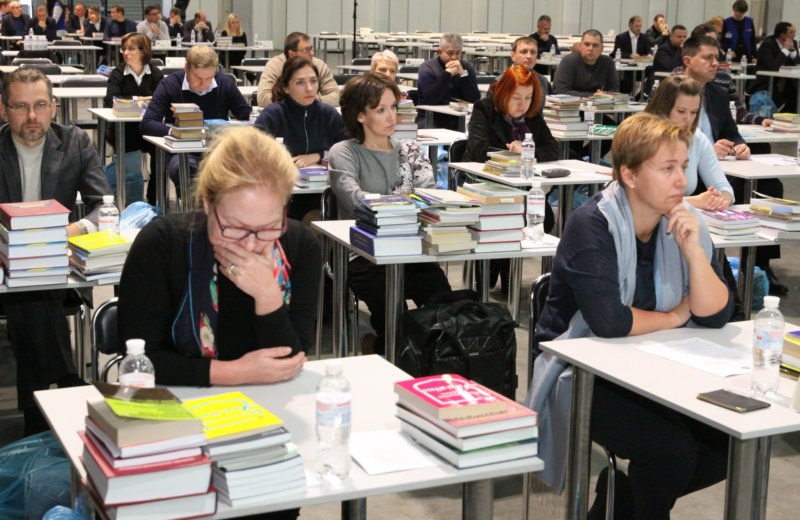Ukraine’s Public Council of International Experts (PCIE) on Jan. 4 approved holding a joint meeting with the country’s High Qualification Commission of Judges on Jan. 18 to consider vetoing eight candidates for the High Anti-Corruption Court.
The council argued that there are sufficient doubts about the candidates’ integrity and professional expertise. This is the first time the PCIE, a foreign advisory body, initiated vetoing candidates for the court; the council will consider more candidates later.
If a majority of both the High Qualification Commission and the PCIE votes for a candidate, she or he will continue their participation in the competition, given that at least three of the six PCIE members approve of the candidate.
Two of the eight candidates considered by the PCIE, Taras Zayets and Oksana Golub, are accused of unlawfully trying EuroMaidan Revolution activists, while Anatoly Zagorodny and Igor Shtulman have reinstated judges fired for persecuting EuroMaidan Revolution activists. All candidates have denied the accusations of wrongdoing.
Two other candidates – Yuriy Kulinich and Dmytro Tishko – have issued questionable court rulings.
Meanwhile, Shtulman, Zagorodny, Anatoly Kvyatkovsky and Yevhen Martynov violated asset declaration rules, according to the Chesno anti-corruption watchdog and the DEJURE Foundation legal think-tank.
According to Chesno, at least 30 of the current 113 candidates for the anti-corruption court do not meet professional ethics and integrity standards.
Regulations
Meanwhile, the Prosud watchdog and Vitaly Shabunin, head of the Anti-Corruption Action Center’s executive board, said on Jan. 4 that the High Qualification Commission had initiated a meeting to introduce changes to its regulations that will effectively block the PCIE from vetoing candidates. The commission did not respond to a request for comment.
“As you understand, the International Monetary Fund won’t give Ukraine any money after that, and this will in turn make the hryvnia plummet,” Shabunin said. “…But this is a good sign – the Presidential Administration has realized that it won’t be able to promote its candidates and decided to confront the IMF.”
The commission said later on Jan. 4 it had introduced changes to its regulations related to the PCIE but the content of the changes was not clear.
Meanwhile in March, the Public Integrity Council, the judiciary’s civil society watchdog, suspended its participation in the vetting of incumbent judges, saying that new High Qualification Commission regulations had effectively blocked the council’s work.
In September the Supreme Court sided with the Public Integrity Council and recognized the High Qualification Commission’s new regulations as unlawful. However, the commission refused to change them and appealed the ruling.
Foreign panel
The PCIE’s six members arrived in Ukraine in November. Earlier, the High Qualification Commission rejected several PCIE nominees whose anti-corruption record and knowledge of Ukraine were well-known. Instead, the commission appointed little-known candidates whose ability to ensure the selection of a genuinely independent court is unclear.
One of the risks is that the PCIE will veto only a few candidates and allow the High Qualification Commission to appoint a politically dependent court, ex-Public Integrity Council coordinator Vitaly Tytych said. To resolve this problem, the PCIE should veto all candidates except for those with the best experience, skills and integrity, he argued.
Manipulations?
In December, the High Qualification Commission of Judges also prompted criticism by allowing some candidates who did not get the minimum score for the practical exams for the anti-corruption court and the Supreme Court to pass to the next stage. The commission argued this complied with its regulations, but its critics said this could be a means of promoting candidates favored by the commission and political loyalists.
The commission did the same thing during last year’s competition for the Supreme Court, and Judge Roman Bregei has disputed the legality of the procedure at the European Court of Human Rights.
Meanwhile, there are accusations that the High Qualification Commission manipulated the Nov. 12 legal knowledge tests for the High Anti-Corruption Court and the Supreme Court. The commission denied the accusations.
Some of the test questions had more than one correct answer, according to Tytych, Andriy Kozlov, member of the High Qualification Commission, and judge Mykhailo Slobodin. The commission had the opportunity to promote some candidates by telling them which answers it deems correct, according to Tytych, who participated in the competition for the Supreme Court but did not pass the tests. The commission refused to give him his test results, which he says proves they were falsified.



